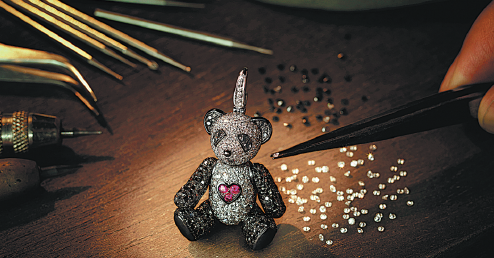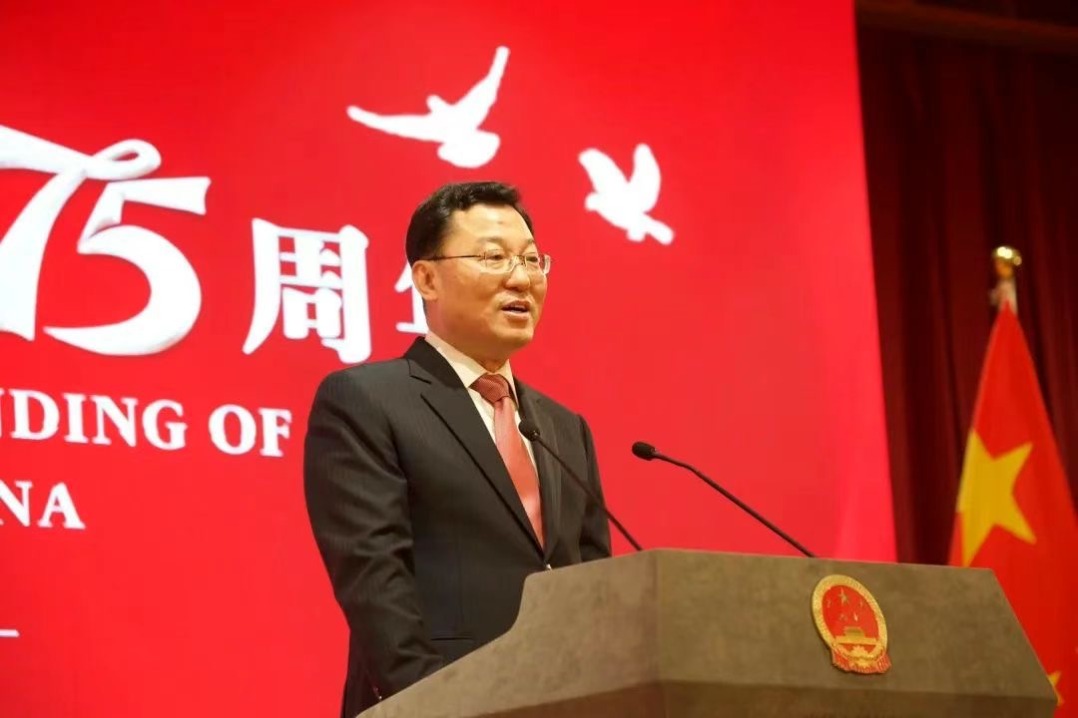How to develop and advance China's cultural exports
By Ying Ni | chinadaily.com.cn | Updated: 2021-05-11 15:32

Korean dramas and idols, Hollywood movies, Japanese anime. Our daily lives are filled with cultural products from other countries, but what about our own cultural exports? Are they also able to build a wide audience?
For a long time, foreigners' impressions of Chinese culture have been stuck on cultural symbols such as pandas, dragon and lion dances, dumplings, Chinese New Year and Confucius. But these cultural symbols are not well-accepted broadly. Although China has opened Confucius Institutes all over the world, Chinese is still not the first choice for language learning. I have spent time in Ireland, and the number of local people learning Chinese was very small. Most are motivated by the ability to trade with China, not by a love of Chinese culture.
Of course, there are also reasons why it is difficult to learn Chinese, and Chinese culture is very different from that of Europe and the US. In addition, China, as a developing country, is still less affluent than developed countries and spends far less energy on cultural exports than its wealthier counterparts. The quality of cultural products in the Chinese market is obviously mixed, and the gap between them and overseas markets is still relatively obvious, so it is naturally more difficult for Chinese cultural products to gain traction abroad.
In recent years, China's cultural industry has grown by leaps and bounds, and the overseas export situation of cultural products has changed. In fact, China's current success in exporting cultural products overseas is not what we perceive as “traditional culture”. In the decade around 2010, China's online novel industry became the only pop culture industry in the whole of China that did not lose out to foreign countries, along with the the self-media industry.
Take TikTok as an example. Due to the global spread of the COVID-19 pandemic, nearly 1.5 billion teenagers around the world have had to stay home from school. Taking this opportunity, TikTok has grown rapidly overseas, with nearly 1 billion users worldwide, growing far beyond rivals such as Instagram. The explosion of TikTok overseas also shows the improvement of China's cultural exports, and Chinese culture is beginning to radiate overseas.
According to CNNIC data, since 2013 the scale of Chinese online literature users has shown an upward trend. The scale of Chinese online literature users in 2018 was 432.01 million, and reach 440 million in 2020. As of March 2021, the scale of Chinese online literature users is 455.38 million, with a usage rate of 50.4 percent.The more active online literature websites in China are mainly Jinjiang Literature City, StartingPointChinese.net and Haitang Literature City, which have produced popular online romance novels such as Silent Separation and Nirvana in Fire.
Especially in Southeast Asia, Chinese online literature has emerged as a growing area of interest, and a large amount of Chinese online literature has been published in Vietnam even in physical form. In addition, Chinese martial arts novels are also on fire overseas, with visits to Wuxiaworld — a well-known English translation site for Chinese online literature — skyrocketing.
Many foreign readers are fascinated by the elements of immortality and mystery contained in Chinese online literature. After 2015, China's cultural output became more influential through the TV series Empresses in the Palace, Nirvana in Fire, Story of Yanxi Palace, LOVE O2O and current series The Untamed, The Joy of Life, Word of Honor and Rattan. The domestic idol drama is gradually replace the "Korean idol drama", beginning to win acclaim in Southeast Asia and even Japan, South Korea and other foreign markets. Of course, in Europe, the United States and other developed countries, there is still a long way to go.
As TV series begin to make their way overseas, China's “we media” industry is not shying away. Li Ziqi has more than 20 million Weibo followers and over 30 million TikTok followers, and has attracted a large number of fans at home and abroad by posting videos featuring traditional Chinese rural life on her accounts. Her overseas social media influence is comparable to that of CNN, the most influential media outlet in the United States, and she has become a cultural celebrity with worldwide appeal.
China's self-publishing has benefited from the rapid development of China's internet industry and China's information infrastructure industry in the 4G era, going from lagging behind the world to catching up with it.
Genshin Impact, a video game developed by Shanghai-based MihaYu, has taken the world by storm with its beautiful content and rich cultural heritage, including Suzhou gardens and Huizhou water towns and character names all expressed in Chinese characters and pinyin. Previously, there was a bug in the Japanese version that made the game dialogue appear in Chinese, but Japanese players said they were willing to learn Chinese so they could play the game.
In recent years, the scale of China's independently developed games going abroad has been climbing annually. Overseas influence, market share and user scale have been expanding, a large number of high-quality games have emerged and the scope of going abroad has gradually shifted from elsewhere in Asia to the whole world. Game manufacturers are actively exploring the Middle East, India, Russia, Brazil and other emerging markets while making efforts in mature markets such as the United States, Japan, South Korea and Europe.
In general, China's cultural exports are gradually improving, but are still weaker than overseas. With that in mind, work to fill the gap should continue.
The author is a Brive Consulting Market Analyst.
The opinions expressed here are those of the writer and do not necessarily represent the views of China Daily and China Daily website.
If you have a specific expertise and would like to contribute to China Daily, please contact us at opinion@chinadaily.com.cn, and comment@chinadaily.com.cn.
























